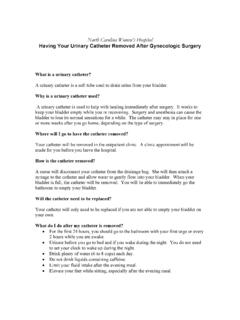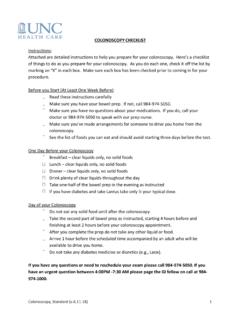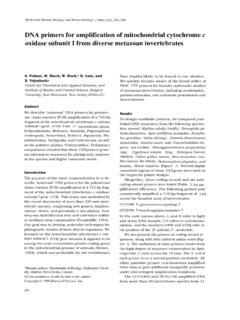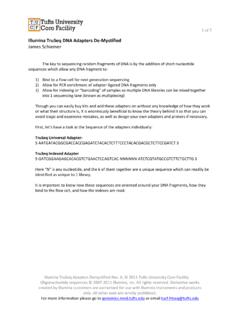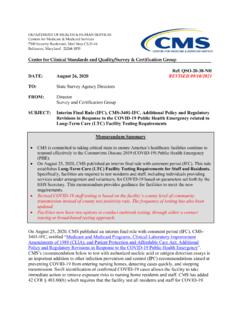Transcription of UNC VOICE CENTER - UNC School of Medicine
1 Taking Care of Your VOICE : What is Vocal Hygiene? Vocal Hygiene is a daily regimen of good habits to maintain the health of your vocal folds. These include eliminating inappropriate vocal habits and situations that place unnecessary wear and tear on the VOICE and common sense behaviors which contribute to efficient VOICE production and overall vocal health. The following is a list of some tips for keeping your VOICE healthy: v Avoid Irritants Cigarettes and second hand smoke Reflux Refer to GERD/LPR handout for additional information. Over the Counter (OTC) Medications See an Ear, Nose & Throat doctor who specializes in VOICE disorders (a laryngologist) for prescription medications which may be less drying v Take Care of Your Body Hydration Drink 6 8 eight-ounce glasses of water/day.
2 Rest Exercise and Good Nutrition v VOICE Habits Avoid throat clearing and coughing Avoid whispering. Warm up your VOICE before making big demands on it Vocal Ergonomics Avoid Repeated Stress on the VOICE Posture Environmental Factors UNC VOICE UNC VOICE CENTERCENTER Signs of a VOICE Problem: Many factors contribute to the onset of a VOICE problem and frequently there is an interplay of multiple factors. You should make an appointment to see a laryngologist if you experience any of the following symptoms for more than 2 weeks (not accompanying a cold): * sore throat or pain during or after VOICE use * hoarse, scratchy, rough VOICE * increased effort when producing VOICE * decreased loudness or pitch range * breathiness, weakness or vocal fatigue * shaky, strained VOICE or VOICE cutting off unexpectedly Other characteristics one might not associate as readily with a VOICE problem are the following.
3 * a feeling of a lump in one s throat * shortness of breath * excessive phlegm and/or the need to throat clear or cough * difficulty swallowing * feeling a frequent urge to cough or throat clear Replacement strategies for injurious vocal habits: Instead of: Try this: Competing with background noise - Move to a quieter area - Turn down volume of TV/Radio when possible - Use an earplug or hold your fingers over your ears for a few seconds to self-monitor your loudness level Increasing loudness to project VOICE or get attention - Use an amplification system - Clap your hands, use a bell, or turn the lights on & off Yelling, cheering, screaming at sporting events or concerts - Stomp feet, hiss, clap hands Grunting when lifting weights - Hiss or blow out slowly


